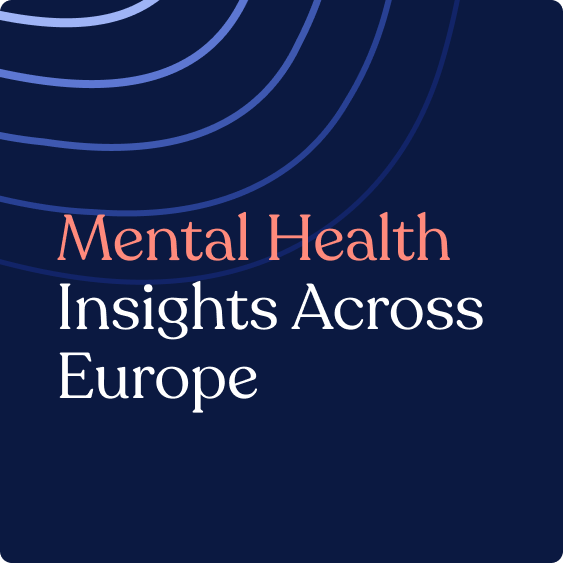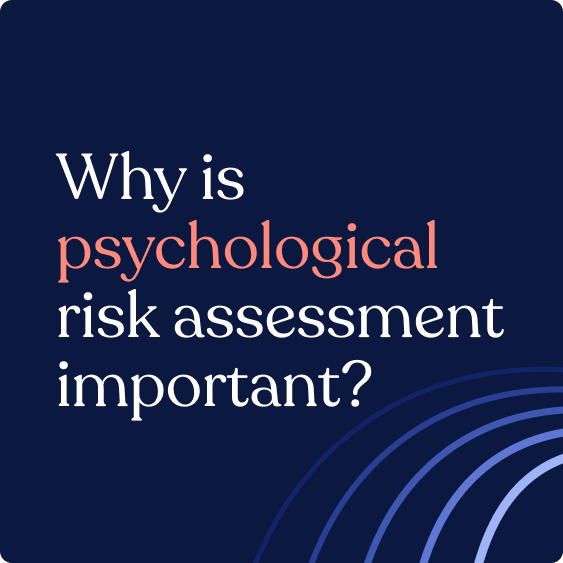Elevating mental health care with expertise:
Our Clinical Research Department
Our in-house research force is crucial in our mission of accelerating advances in mental well-being. By combining our clinical knowledge and data with rigorous research, we develop solutions that truly impact lives and companies.

Elevating mental health
care with expertise:
Our Clinical Research Department
Nuestro equipo interno de investigación es una pieza fundamental en nuestra misión de impulsar el conocimiento sobre el bienestar mental. Al combinar nuestra experiencia clínica y nuestros datos con el poder de una investigación rigurosa, desarrollamos soluciones que realmente impactan tanto vidas como empresas.
A run-through our story








Our Science-Driven Methodology
The mental health platform uses evidence-based practices and innovative methods, informed by the latest research and a network of over 600 healthcare professionals, to ensure effective and practical treatment interventions.
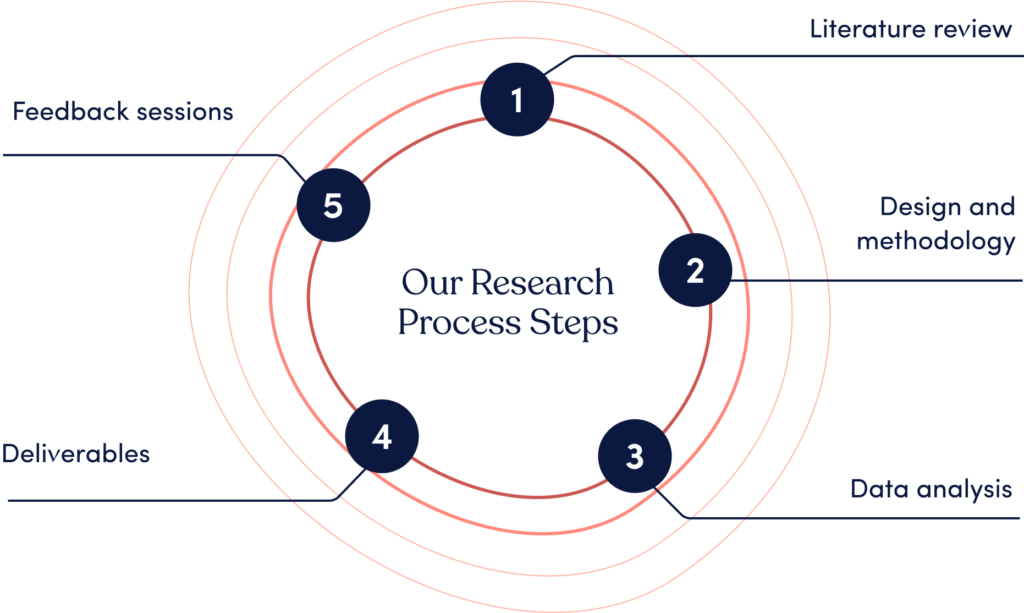
Our Research Lines
Proving Effectiveness
- Validation of the impact of our therapies.
- Focus on symptom reduction, well-being, and patient satisfaction.
- Boosting patient-therapist engagement.
Optimisation with AI integration
- Integrating AI technology for better services.
- Personalised therapy through AI tools.
- Streamlining therapy processes for efficiency.
Solutions for continuous improvement
- Adapting to evolving needs.
- Data-driven enhancements.
- Testing for ensuring high-quality services.
Our Research work
This research is significant as it aims to improve digital therapies and develop innovative solutions for better mental health, showcasing our commitment to advancing the field with impactful, rigorous studies.
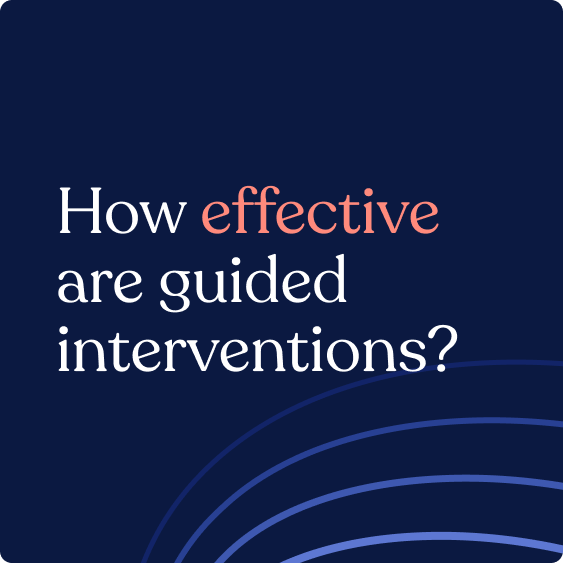
Efficacy of Guided Interventions in Anxiety
“Guided path" refers to a therapeutic approach in which the therapist guides the patient through a structured process to address their problems and achieve their goals.
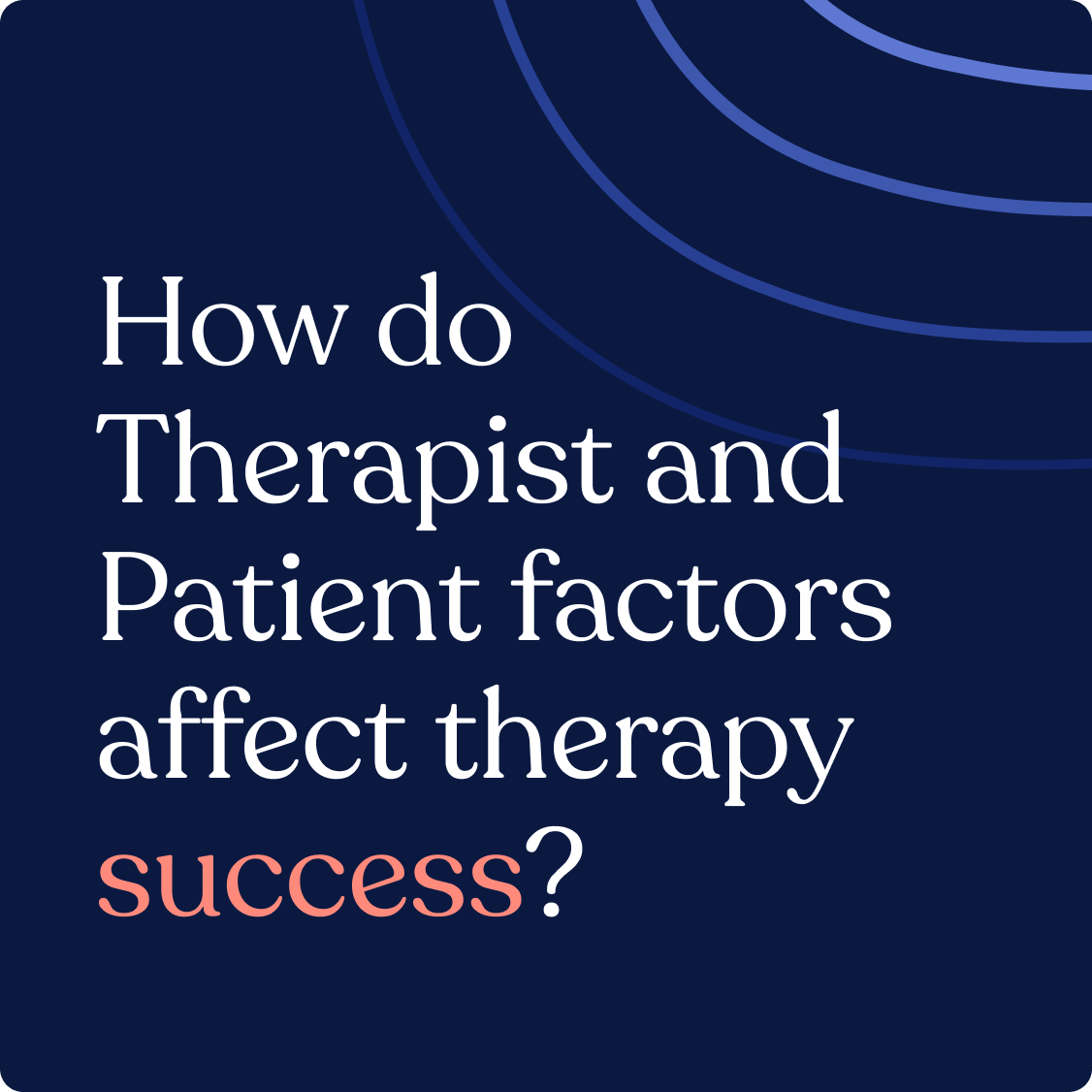
Reason of consultation alignment between therapist and patients
The reason for consultation as the beginning of the therapeutic process. In our interesting study you can find information on how factors related to therapist and patient influence the success of therapy.
Our Scientific Advisory Board

Prof. David Roe (PhD)
Affiliation: Haifa University
Dr. Roe is a licensed Clinical Psychologist and Professor at the Department of Community Mental Health, University of Haifa, Israel, and an affiliated Professor at Aalborg University, Denmark. His research focuses on the psychosocial processes of recovery from serious mental illness, stigma, Patient Reported Outcome Measures (PROMs), and the evaluation of interventions and services.

Gili Hoter Ishay (PhD)
Affiliation: Ono Academic College, Israel
Dr. Gili Hoter Ishay is an occupational therapist and researcher, the Head of mental health in the Department of Occupational Therapy at Ono Academic College, Israel, and a Research Fellow at the Center for Mental Health Research , practice and policy at the University of Haifa. Currently involved in research focused on development and implementation of effective interventions to improve the lives of people with mental disorders.

Jesús Prada Alonso (PhD)
Machine Learning Expert
CEO | Horus ML
PhD in Computer Science and Telecommunications with a specialisation in Artificial Intelligence from the Universidad Autónoma de Madrid.
Since 2018, Jesús Prada has focused his career on the healthcare field. He served as the Director of the Machine Learning Area at Sigesa until 2022 and is currently the CEO of Horus ML, a company dedicated to creating personalised products based on artificial intelligence and machine learning in the healthcare sector.
His work primarily involves projects with a strong R&D component in the clinical healthcare field. Additionally, he collaborates with ifeel as an expert in artificial intelligence techniques, developing tools for the automatic evaluation of therapeutic needs and generating personalised recommendations for agents and users of the platform. He is also a professor at several institutions, including the Instituto de Empresa and the Universidad Politécnica de Valencia, where he teaches artificial intelligence and machine learning.

Cristina Gil López (PhD)
Research Leader in Digital Mental Health
Dr. Cristina Gil-López holds a PhD in Cognitive Neuroscience from Universitat de Valencia, specialising in neurocognition and consumer behavior research methods in both academic and business settings.She leads research at ifeel, focusing on enhancing the effectiveness of digital mental health therapies using evidence-based approaches. Her leadership aims to establish new research avenues in digital therapies, ensuring the company's position as a leader in digital mental health research.
How can we help?
Yes, online therapy supported by research is credible and reliable. Available studies have consistently validated its efficacy in treating mental health issues, comparable to face-to-face therapy. This evidence ensures the trustworthiness of online therapy as an effective treatment option.
Online Therapy offers the opportunity to remove existing barriers to treatment such as time and distance but it is vital to explore whether it meets the same criteria of quality and effectiveness as face-to-face therapy.
Recent studies confirm that online therapy effectively reduces psychological distress. Specifically, chat-based interventions offer anonymity, privacy, and a safe space for expressing vulnerability, making it an effective and confidential option for therapy accessibility.
In Digital Mental Health, research benefits patients by pinpointing effective treatment approaches. By analyzing patient outcomes and therapy responses, research identifies tailored strategies for each condition, promoting improved mental health and overall well-being.
At ifeel, research shapes our therapeutic plans through AI and mental health risk analysis. We use evidence-based methods to tailor treatments and digital tools to each patient’s needs, ensuring accuracy and effectiveness of our mental health therapies.
Research drives digital therapy through innovation and the customization of interventions. It promotes continuous improvement based on evidence-based methods, leading to more effective and accessible therapies for individuals worldwide.
Research boosts mental health care access by identifying barriers, testing effectiveness of online therapy and developing innovative solutions. The digital adaptation of scientifically proven therapies can effectively reach underserved populations, offering flexibility and reducing stigma.
